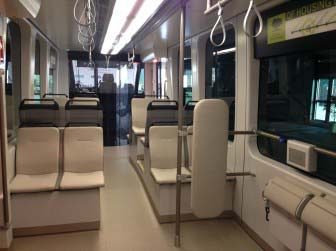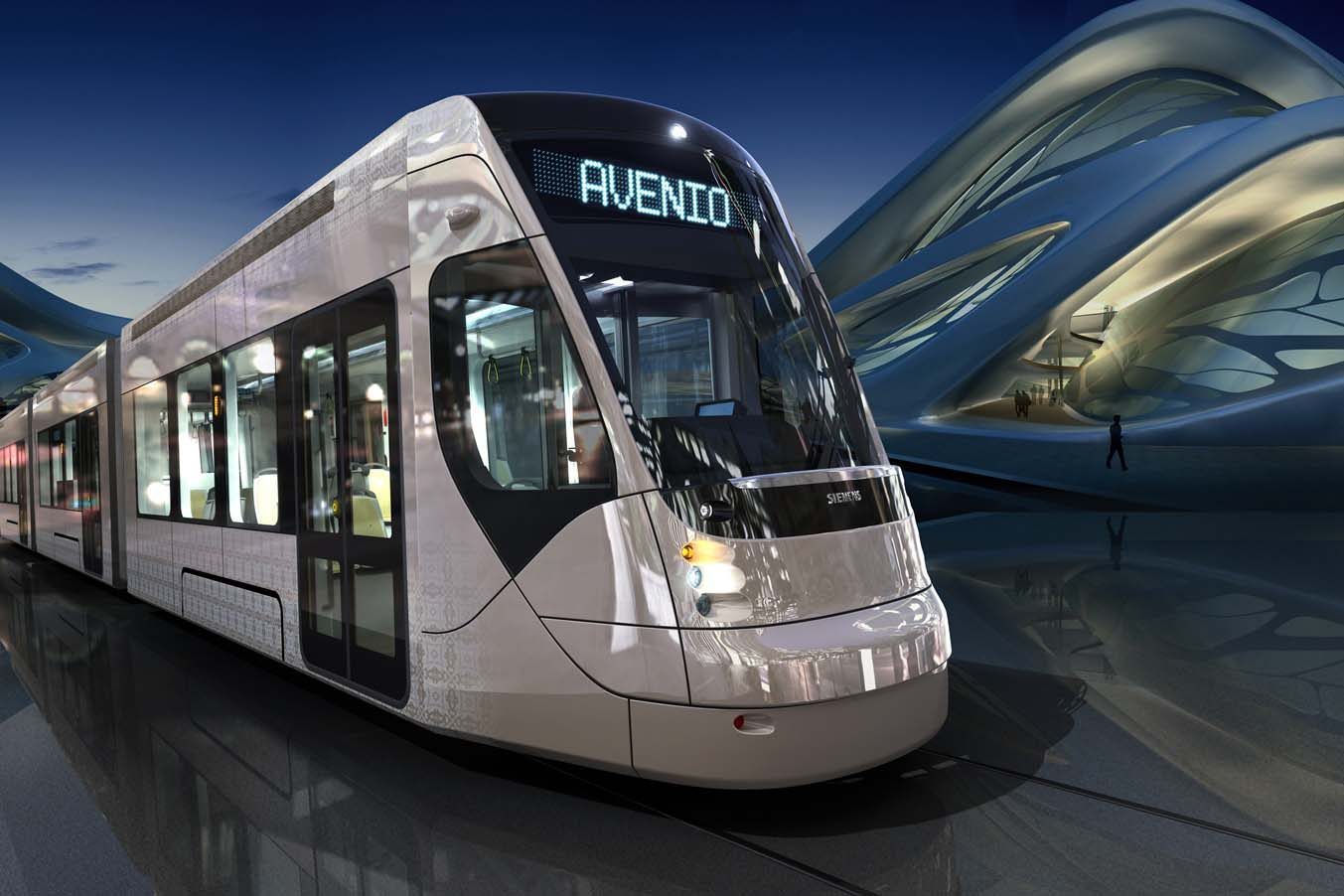
With reporting from Peter Kovessy
The first tracks for a new tram network at Qatar Foundation‘s Education City campus have been laid, and stations are beginning to take shape as construction on the 11.5km public transportation network proceeds.
In a statement to Doha News, QF answered questions about a plan to link all the universities and facilities throughout EC with a people mover system, eliminating the need for cars on campus.
The project was first announced in 2012, when QF signed a $412 million contract with German engineering company Siemens to build what it called one of the most energy savvy forms of public transportation in the region.
Track construction, stations, depot and civil engineering work worth $124 million is being undertaken by Habtoor Leighton Group, and Astad is managing the project for QF.

The people mover is expected to be online by the fall of 2016, one year behind its originally scheduled September 2015 launch date.
Once the tram is operational, students and staff will be required to use multi-story car parks on the perimeter of campus and take the trams to get to class.
Last year, Director of Technical Affairs for QF’s Capital Projects Directorate Jassim Telefat described his vision of a car-free environment in the QF Telegraph:
“We are breaking records and setting new standards in many respects. One of the key components of these plans will be an integrated public transportation system based on light rail.
When you see a car driving through Education City, you should perhaps take a photograph, because it will soon be a thing of the past.”
Most of the tracks will be laid above ground, but the people mover will also connect to the Qatar National Convention Center by a tunnel under the Dukhan Highway. The tram will also take people to the Sidra Medical and Research Center.
Tram details
A total of 26 stations are expected to be built across Education City, serving university buildings, car parks, administration buildings and student accommodations. The goal is to also link the people mover with the FIFA World Cup stadium planned for the area, the statement said.
Unlike conventional trams, there will be no overhead power lines, which are often viewed as unsightly and dangerous.
Instead, each of the 19 trams are equipped with batteries that charge during station stops.
According to QF, the trams will also re-use power that would otherwise have been lost during braking, “becoming possibly the most energy efficient form of public transport in the Middle East.”

Running at normal capacity, the air-conditioned trams would be able to move up to 3,300 passengers each hour in each direction – with space for 60 people seated and another 162 standing across three cars in each tram.
During rush hour, the trams, which are wheelchair accessible, are expected to operate every four minutes.
Full-size mock-ups of the Avenio trams were unveiled to the public earlier this year, and a trial run of the service is planned to start in early 2016.
Eventually, the plans are for the Education City tram system to link up to the Doha Metro through the Green Line, which aims to be finished in time for the 2022 World Cup.
Car-free transport
Due to a space crunch caused by ongoing construction projects, QF banned most students from parking on campus last fall, causing widespread consternation. Student drivers must now leave their cars in designated spots at the QNCC and take a shuttle bus to school.
When asked about the bus system, QF said:
“The current bus schedule, along with the QNCC parking situation, is considered a temporary solution and is re-evaluated on a monthly basis as necessary.”
In the past, Education City was home to silver and gold colored trains that transported people between buildings.

However, these slow-moving, diesel-run vehicles, dubbed “Hogwarts Express” by some, were quickly scrapped.
A bike-share scheme was also introduced last year. But, according to student publication The Daily Q, it suffered problems after the company supplying the batteries for the electric bikes went out of business.
The site quotes Telefat as saying that QF is looking for a new cycle system. However, some students have criticized the plan, saying bikes would not be popular with students who wear thobes and abayas.
Thoughts?







